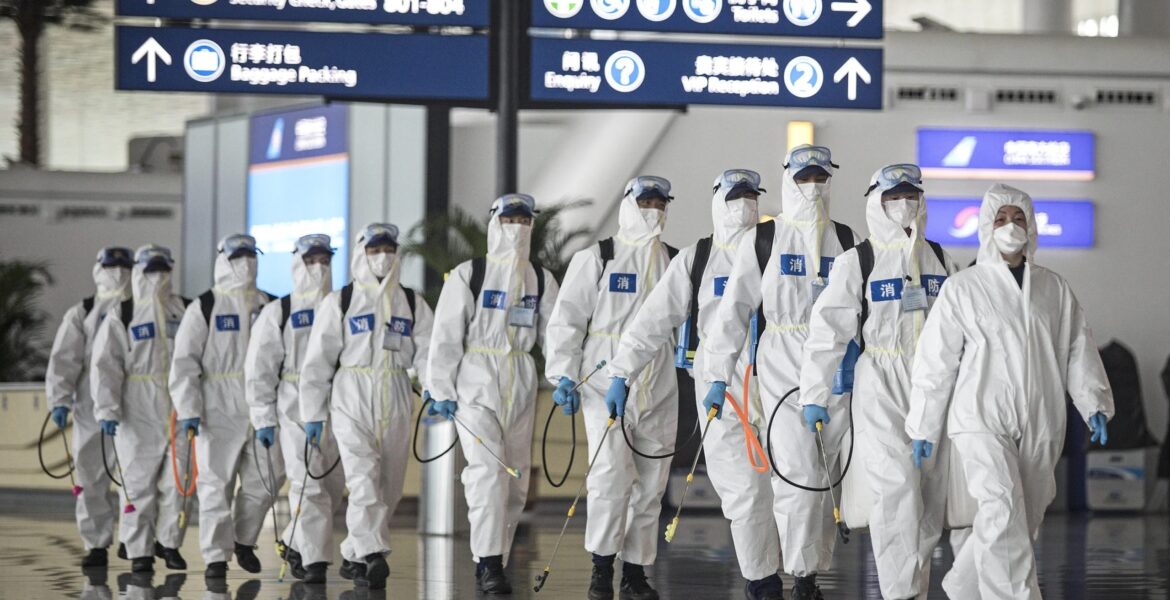The Chinese economy is going through turbulence and is unlikely to see improvement anytime soon. Instead, it is set to suffer for a long time because of the the severe blows expected as the uncontrollable Covid-infection continues to spread, in addition to the demographic crisis.
China is fighting the unprecedented Covid infection spread, which has sent everyday life and businesses out of gear. At the same time, it has been struck with a new problem— a lower workforce due to a declining population. These factors will likely seriously impact all major sectors of China’s economy, such as manufacturing, agriculture, and services.
In 2022, China’s GDP grew by just 3 percent, the worst since the Mao era. Similar economic situations were witnessed during Great Leap Forward and Cultural Revolution.
China's GDP had been slowing for a decade before reaching 2.24% in 2020, its slowest pace since the mid-1970s. Before that, growth sharply amid political campaigns such as the 'Great Leap Forward' and the Cultural Revolution. (Source: Macrotrends) pic.twitter.com/CiSIglgofD
— @[email protected] (@p_hannam) January 17, 2023
These political campaigns had failed miserably as they disrupted Chinese society and killed millions. Many experts and observers are holding Chinese President Xi Jinping’s mismanagement of the Covid crisis, especially his Zero Covid policy, for the current economic situation in China. High domestic inflation, power crisis, and geopolitical tensions are some roadblocks created by Xi’s government that will hurt China’s economic recovery.
In 2022, Xi managed to secure the third term smoothly, harping on nationalism and dreams of prosperous China. However, his Zero Covid Policy that imposed harsh restrictions on public movement and businesses has led to widespread anger. The policy was revoked abruptly a few weeks ago, leading to confusion and disturbance in society. This caused Covid cases to go up, making people sick, thus naturally slowing down business activities. Renaud Anjoran, CFO of Hong Kong-based supply chain management firm Sofeast Limited, said output was slow as over 40 percent of the workforce, including top officials, was down with Covid. “The situation is so volatile. China production is going to be impacted for some time to come,” he said.
While China’s exports saw an annual increase in 2022, retail sales and real estate saw negative growth. The ongoing wave of Covid has led to chaos in China as factories are shut, transports are disrupted, and workers are refraining from going to work while consumer spending has lowered. “Many workers have had salary cuts in 2022 with all the lockdowns. Consumer confidence is very low. A lot of small and medium-sized enterprises have already gone out of business,” said Shaun Rein, managing director of the China Market Research Group. China’s economy saw a sharp decline in the fourth quarter of 2022, coinciding with the Covid crisis’s latest episode.
These recent developments have given a glimpse into the future growth prospects for the Chinese economy. Harry Murphy Cruise, an economist at Moody’s Analytics, said, “China’s 2023 will be bumpy; not only will it have to navigate the threat of new COVID-19 waves, but the country’s worsening residential property market and weak global demand for its exports will be significant brakes.”
In 2022, China’s population fell by 850,000. It showed that the birth rate has fallen and that people in China ignored the government’s appeals to have more than one child. The shrinking population means a declining workforce. It will damage China’s stronghold of the manufacturing sector in the long term as a cheap labor force will not be available. Yi Fuxian, a demographer at the University of Wisconsin-Madison, states that the demographic problem will add to China’s economic slowdown and manufacturing recession. “China’s demographic and economic outlook is much bleaker than expected,” he said.
Japan Centre for Economic Research, a private think tank, has predicted that China’s GDP would not be able to surpass that of the US even after 2036 due to a declining labor force. It said Xi’s protectionist policies and Zero Covid Policy played an important role in the poor prospects of the Chinese economy. Hong Kong-based economist Zhiwei Zhang highlighted the negative impact of Covid infections and the Xi government’s dependence on demographics in China’s economy. “Going forward, demographics will be a headwind. Economic growth will have to depend more on productivity growth, which is driven by government policies,” he said.


